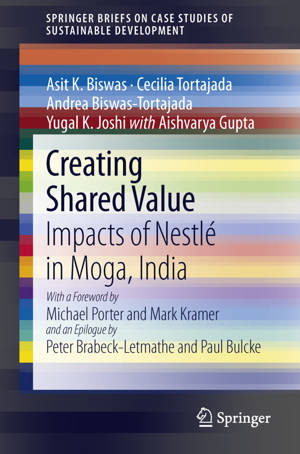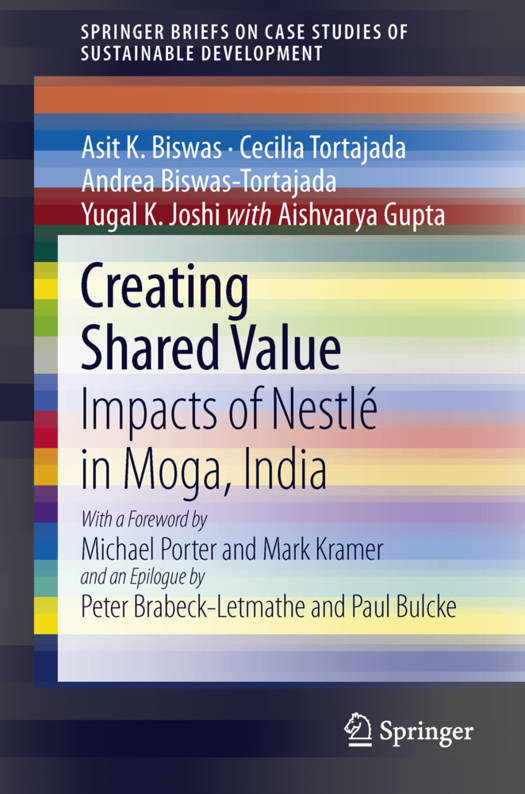
- Retrait gratuit dans votre magasin Club
- 7.000.000 titres dans notre catalogue
- Payer en toute sécurité
- Toujours un magasin près de chez vous
- Retrait gratuit dans votre magasin Club
- 7.000.0000 titres dans notre catalogue
- Payer en toute sécurité
- Toujours un magasin près de chez vous
Creating Shared Value
Impacts of Nestlé in Moga, India
Asit K Biswas, Cecilia Tortajada, Andrea Biswas-Tortajada, Yugal K Joshi, Aishvarya Gupta
52,95 €
+ 105 points
Description
Nestlé's Moga factory was set up in 1961 and comprises of the primary milk collection area for Nestlé's operations. Since its inception in Moga, Nestlé has been working with its milk farmers and ancillary suppliers towards improving quality and productivity. The study presented in this book (carried out by the Third World Centre for Water Management, Mexico) highlights Nestlé's way of doing business through its philosophy of Creating Shared Value (CSV) and how it contributed to the development of the region over the past 50 years through direct and indirect employment, steady income for milk and other suppliers, and technology transfer. The main objective of the study is to learn to what extent has Nestlé contributed to fulfilling the societal aspirations and expectations of the people working in and around its factory in terms of employment generation, poverty alleviation, general improvements in the community's standards of living and environmental conservation. The study also tried to determine to what extent has the company created shared value for itself, milk farmers, ancillary firms, and the community at large. This effort aims at encouraging more research to be carried out to comprehensively and authoritatively look into the impacts private sector can have on and around the area where their factories are located and that way, contribute to our understanding of social-corporate-government interdependency. An important aspect of this pioneering monograph is the methodology that could be used to study how Corporate Social Responsibility (CSR) or Creating Shared Value (CSV) of a large multinational company can be properly monitored and objectively evaluated at a region-specific scale, especially as very few studies of this nature have been carried out anywhere in the world. This definitive book is further enriched by a foreword by Prof. Michael Porter of Harvard Business School and an epilogue by Peter Brabeck-Letmatheand Paul Bulcke, Chairman of the Board and CEO of Nestlé respectively.
Spécifications
Parties prenantes
- Auteur(s) :
- Editeur:
Contenu
- Nombre de pages :
- 115
- Langue:
- Anglais
- Collection :
Caractéristiques
- EAN:
- 9783319014623
- Date de parution :
- 27-09-13
- Format:
- Livre broché
- Format numérique:
- Trade paperback (VS)
- Dimensions :
- 152 mm x 229 mm
- Poids :
- 204 g

Les avis
Nous publions uniquement les avis qui respectent les conditions requises. Consultez nos conditions pour les avis.






